By Tehmina Kazi
It could be any Midlands mosque. Statuesque, with a dome as white as paste and a pencil-sharp minaret. The scent of chai – all liquorice, cloves and cassia bark – pervades the air, although the polystyrene cups do not do justice to the flavour.
Half a spoon of sugar? No, I want three, and proper milk, please. None of that long-life stuff. The chai-walla’s thumb turns an unsightly shade of crimson after pressing the latch for the hot water tank – and narrowly missing the cup. A young lad from the local five-a-side team rushes to help out, wrapping an unused tissue around the fat thumb. The queue of those demanding tea doesn’t get any shorter; quite the opposite.
Twenty-something mums in sky-blue hijabs with matching eyeshadow, cardiganned gentlemen catching up on bakwas (nonsense), teenagers who are rushing in for Zuhr prayers then back to anatomy class. Outside the main prayer hall, there is a poster advertising a forthcoming talk: “The Future of Christian-Muslim relations.” Speakers include Julian Bond, chief executive of the Christian-Muslim Forum, and Manwar Ali, a local imam with Salafi roots who has learned the importance of interfaith dialogue in recent years. It is the in-thing right now. People are still buoyant after the story of York Mosque, further up North, and their efforts to counter the English Defence League by inviting them in for tea and biscuits! “Islamophobia is rampant, but this lot cracked it!”
Juvayriyah has just been in to vacuum the carpets and tidy the prayer mats – all piled haphazardly onto foldaway chairs, no less – after a six-week break in Jammu and Kashmir. “I think I will go to this – it’s gotta be interesting,” she tells a pregnant Kalsoom, who is Head of the Sisters Committee.
“Talk is cheap. Look at the brother who went to fix up the church the other day – now that’s progress. Also, it’s all very well, this interfaith stuff, but what about how we treat our own? My husband is a black revert, and look what happened when he went to pray in the other mosque down the road?
“Within a few seconds, three guys – all desis – moved their jackets and wallets. This is on top of the nonsense he has to face from his own mum, who can’t understand why he left Christianity, and thinks that Islam is an Arab religion.” She looked downcast. “I had to fight to marry Jamaal. Abbu has pretty much washed his hands of me, and I dread to think what will happen when this one is born.” She pointed to her mid-section, which was only slightly convex.
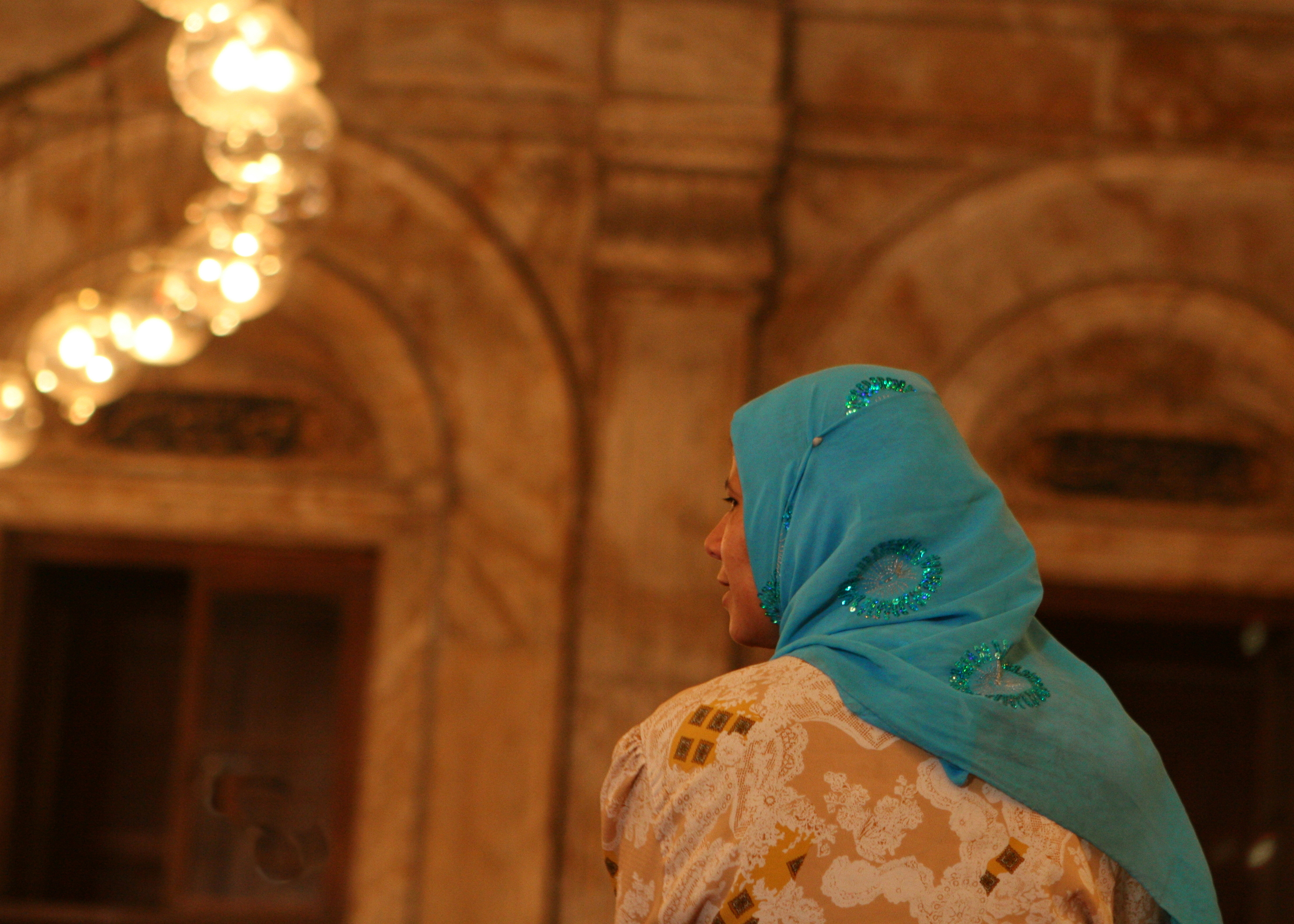
Kalsoom’s story has been borne out in hundreds, if not thousands, of case studies across Britain. Moroccan-heritage women marrying black men, Pakistani-heritage women eloping with white Englishmen, Bangladeshi-heritage women choosing white French partners – who also happen to be women. Several of these stories come to the fore in “Hidden Heart,” a ground-breaking documentary by Zara Afzal and Christo Hird. It offers a nuanced and sensitive portrayal of the backlash that heritage Muslim women often face when marrying outside their ethnic communities. Will he convert or won’t he? Even if he does convert, to what extent is it a real conversion? Won’t someone think of the children? Family politics starts to show some of its uglier incantations.
Broader concerns about the synchronicity of social backgrounds are often amplified as a result. As Dugan Rumano writes in his book, Intercultural Marriage: Promises and Pitfalls: “Similar social background is an important ingredient in any marriage, intercultural or not, as it implies (but does not guarantee) similarity of education, attitudes, tastes and manners.” In many British Muslim families, the emphasis on shared social and cultural backgrounds is disproportionately high, and does not take into account the myriad of other (often intangible) factors that influence attraction or long-term compatibility.
According to Labour Force Survey data from between 1997 and 2001, analysed by Ceri Peach, 98% of Bangladeshi women were married to Bangladeshi men and 94% of Pakistani women were married to Pakistani men. Peach concluded that marriages were “overwhelmingly within religion, within caste.” This is despite the fact that the percentage of lone parents within Muslim communities is 12%, and Sophie Gilliat-Ray notes in her “Muslims in Britain” book that this is “higher than would be anticipated, given the efforts to secure lasting marriages.”
It seems that the offer of family support – and the process by which it manifests itself – may be more important to British Muslim women than the result of said support. Tehmina Basit’s 1996 research shows that familial support is a key reason why many British Muslim women go along with arranged marriages in the first place. One of her participants noted: “If you choose someone yourself and you have problems, then you have nowhere to go.”
Of course, the taboo attached to interracial marriage within British Muslim communities is nowhere near as severe as that attached to inter-religious marriage or gay marriage. However, intersectional discrimination is often an issue, particularly when it comes to male partners of heritage Muslim women (both those who convert to Islam and those who do not).
Aisha Ansano’s 2012 research at Stanford University, Muslim Women’s Marriage Choices, lends credence to the discrimination faced by non-heritage Muslim males who marry into heritage Muslim communities. Even though Ansano’s research was with American Muslim women, and she had only eleven interviewees, the response of participant ‘Amira’ is particularly poignant:
“Amira said that she had considered marrying a non-Muslim man for some time, as finding a Muslim man in the places she lived and worked was proving very difficult, but she eventually found a male convert to marry. She says that even this upset her mother, though “it would have been even worse if it hadn’t been a Muslim,” she clarifies.
Black men (both converts and non-converts) seem to suffer the worst discrimination when marrying into Asian families. An NOP poll of over 1,700 people conducted for the Institute of Public Policy Research (IPPR) in 1997, found that 32% of Asian respondents – compared to 13% of white people – said they would “Mind a lot” if one of their close relatives were to marry a person of Afro-Caribbean origin.
Pernilla Ouis’ research adds weight to this discrepancy between individual choice and parental expectations:
“Although most interviewees said that in theory they would accept a partner of any ethnicity or race, one tentative finding of the research project is that, sadly enough, some kind of racism based on skin colour still plays a role in choice of spouse.”
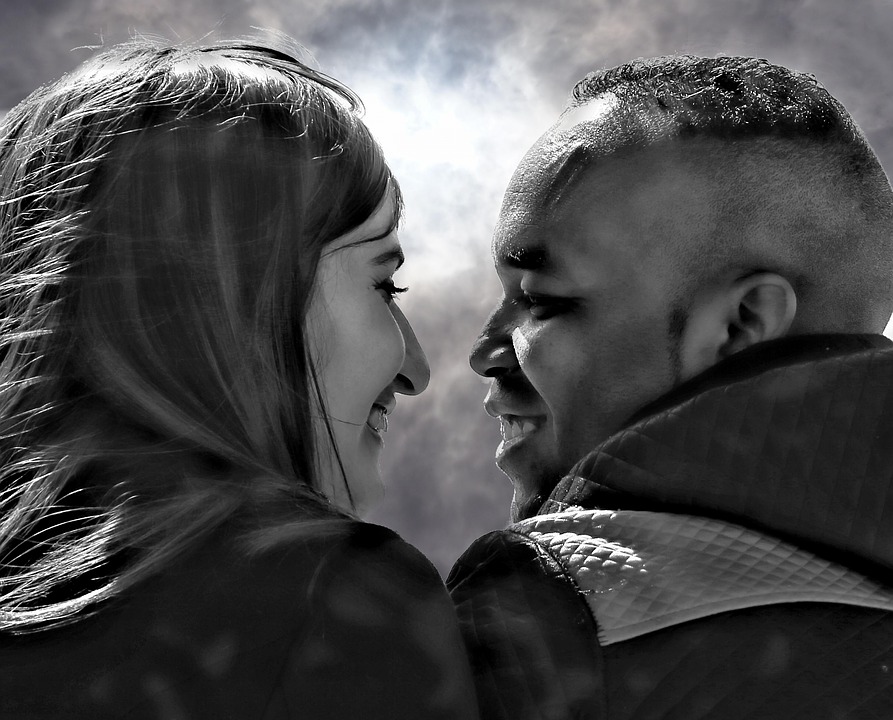
It is clear that the stigma of marrying outside one’s heritage community applies to Muslim women more acutely than their male counterparts. Yet civil society responses to this problem have not fully grappled with this distinction. In November 2012, the Christian-Muslim Forum launched its Interfaith Marriage Guidelines at Westminster Abbey, in co-operation with the Inter-Faith Marriage Network and the Muslim-Christian Marriage Support Group.
They featured case studies of Muslim women who are married to men from different ethnic and religious backgrounds. They also reproduced statistics from the 2001 census, which recorded 17,163 Christian women married to Muslim men and 4,233 Christian men married to Muslim women. While the guidelines provide a strong framework for the pastoral care of men and women in inter-faith and, to a lesser extent, inter-racial marriages, they could do more to specifically address the Islamic jurisprudence which generally states that Muslim women should not marry non-Muslim men.
At times, this opprobrium can turn into outright violence and intimidation against couples and/or family members. One of the most frequently reported cases of a British Muslim woman marrying outside her community was that of Zena Briggs, who set up the Zena Foundation to help forced marriage victims after she escaped one herself, having eloped with white Englishman Jack Briggs. They were chased by a private investigator and ended up with a £9,000 bounty on their heads. After 16 years on the run, the couple split up. However, their book Runaways was read out by Ann Cryer MP in the House of Commons, eventually leading to the creation of the Government’s Forced Marriage Unit in 2005.
Fortunately, there are more progressive approaches to diversity in one’s choice of spouse – and many of these find their origin in religious texts. In terms of theological support for inter-racial marriage specifically, the Quranic verse that is often cited is Surah Al Hujurut (49:13):
“O mankind! We created you from a single (pair) of a male and a female, and made you into nations and tribes, that ye may know each other (not that ye may despise (each other). Verily the most honoured of you in the sight of Allah is (he who is) the most righteous of you. And Allah has full knowledge and is well acquainted (with all things).”
On top of this, the prophet Muhammad also encouraged interracial marriages among his Sahabah (companions), including the marriage of Bilal the muezzin to an Arab lady from Bani Bukayr. The biological benefits of interfaith marriage were recognised, alongside the Islamic ethic of diversity in general.
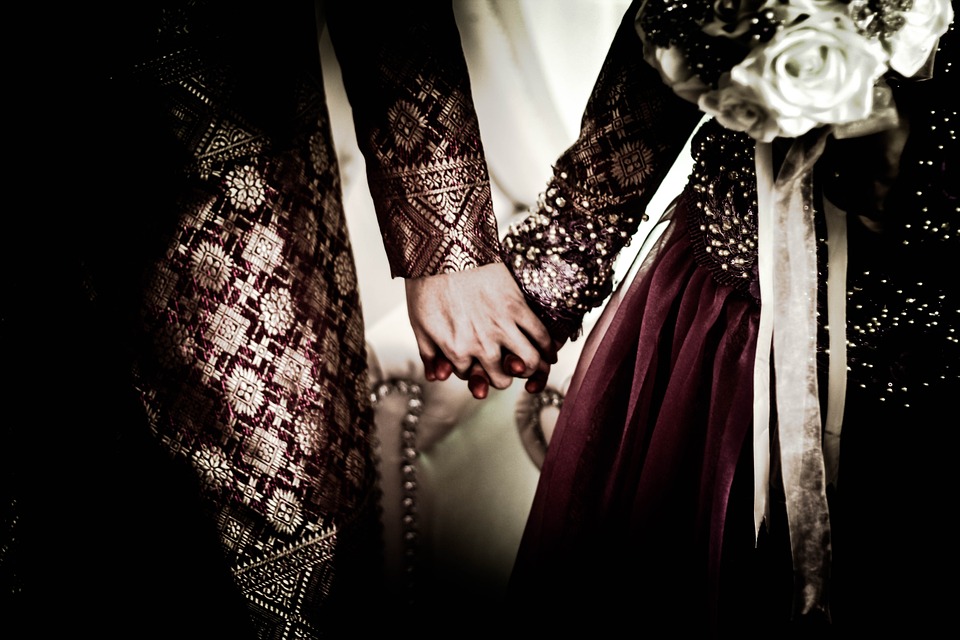
It is narrated that Omer Ibn Al-Khatab, the second khalifa, noticed that the progeny of the tribe of Bani Assayib had become weak and unhealthy because of intermarriage of cousins. He advised the tribe to avoid close-cousin intermarriage and to seek wives and husbands from tribes further afield, saying: “Marry from far away tribes, otherwise you will be weak and unhealthy.” This explicit theological support for inter-racial marriage has not successfully filtered down to the grassroots.
From anecdotal observation, and to the surprise of many, Salafis appear to be the exception among Muslim groups on this matter. Despite my profound disagreement with the movement on other doctrinal issues, both heritage male and female Salafis seem to be more likely to enter into interracial unions than sects or movements which place cultural considerations at their fulcrum. As Shiv Malik in Prospect Magazine, describing the 7/7 bombers:
“So when the Mullah boys started conducting marriages from the premises of Iqra, the local Islamic bookshop on Bude road, it caused a stir. Ali says that when Sidique Khan’s friend Naveed Fiaz and his brother married white girls, and a Bangladeshi girl married an Afro-Caribbean guy, the community elders became very worried. But the Mullah boys were armed with faith. As long as the marriages were between Muslims, they didn’t care about tribal tradition. And since the outsiders all converted to Islam before the marriages, the older generation’s insistence that their young marry their cousins was simply ignored.”
“The Salafi Feminist” blog, by Zainab bint Younus, extols the virtues of the prophet marrying a Jewish woman, Safiyyah bint Hu’ayy. While the other wives had initially belittled her for her background, her heritage eventually became a “source of honour.”
Regarding parental opposition, Cambridge University scholar Shaykh Michael Mumisa believes that a woman can ignore the protestations of her parents if they oppose her marriage purely on racial, tribal or cultural grounds. In any case, not everyone believes in the legitimacy of a wali (guardian), depending on which madhab (school of thought) they follow – this is a role that arguably places more arbitrary limitations on a woman’s autonomy in the modern context, as opposed to steering her towards a sensible course of action.
Mumisa deploys the Hadith,“Al-Muslimun ‘ala shurutihim illa shartan ahalla haraman aw harrama halalan” to argue that “a wali (guardian) risks losing his legal status and privilege as a guardian if he abuses such a privilege granted by Islam to prohibit (attempts to make haram) what would otherwise be a permissible (halal) contract in the eyes of God.”
It is safe to say that the multitude of religious interpretations on Muslim women marrying non-Muslim men has not filtered down to the grassroots either. Even if one were to follow the mainstream opinion on this, it must be recognised that attraction and compatibility cannot be number-crunched via some precise formula, and that the Human Rights Act expressly promotes the right of choice in marriage.
While some Muslim bloggers – Tariq Nelson being one of them – supported interracial marriage as one of the conduits towards a singular American Muslim identity, I would go a step further than that. Muslim women should be able to marry outside their faith communities as well, and feel confident in doing so, without that neurotic voice in the background telling them they are necessarily doing something wrong.
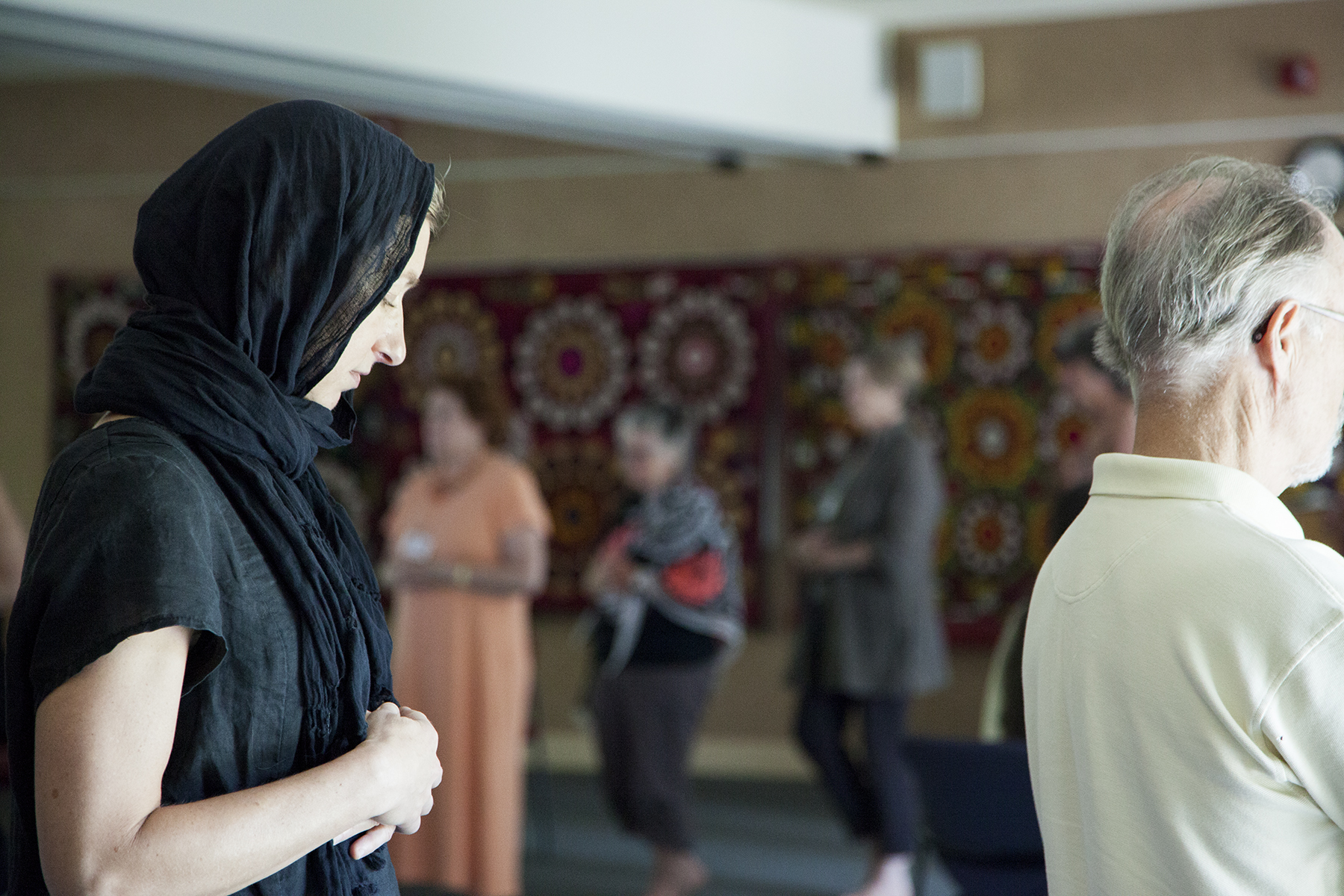
This is particularly the case if they have exhausted other options within their own faith communities. It is time to make a distinction between actual wrongdoing – based on the fitra or the innate predisposition of human beings to do good – and guilt that has been induced by trying to do the hula with different community-based “rings of expectation” all at once. One by one, the rings will eventually fall down.
Dr Khaleel Mohammed, associate professor of religion at San Diego State University, addresses the patriarchal “ring of expectation” in his fatwa on Muslim women marrying non-Muslim men on the Project Ijtihad website:
“In our day, since Qur’anic Islam (as opposed to the Islam of the male jurists) must acknowledge the radical notion that women are equals of men, that women have legal rights, and that those rights include placing conditions on the marriage (what you and I would term a ‘prenuptial agreement’), then an interfaith marriage can take place on condition that neither spouse will be forcibly converted to the other’s religion. As long as that condition is respected, you and she have my blessing.”
Further, there is an acute demographic issue within diaspora Muslim communities where men have more freedom – in practice – to either marry women from outside their heritage communities or those from their countries of origin. It is neither just nor compassionate to allow this state of affairs to continue unabated, while at the same time increasing the social restrictions on women to the point where they are unable to find partners at all.
Islam is supposed to offer a means of perfecting human character. Therefore, it is difficult to see how Muslim women were prevented from marrying people who possess strong character traits, yet lack Muslim names. Conversely, there are women who are married to men – with Muslim names – whose character traits could do with significant improvement!
Interfaith marriage is one of the contemporary issues at the nexus between individual choice and communitarianism, an issue explored by Cambridge University’s “Contextualising Islam in Britain II” report. Contrary to popular belief, the prophet refrained from applying legislative codes in personal matters of morality, particularly anything that would lead to “unsustainable spiritual burdens and disproportionate self-criticism.” He preferred resolutions that were based on practical advice and common sense.
When Muslim women marry outside their ethnic and religious communities, they are not merely exercising individual choice, as choice does not exist in a vacuum. Further, the “push and pull” that occurs in most religious and ideological movements is actually about building a critical mass. For example, every time a Muslim woman – particularly if she occupies a high-profile position within Muslim communities – decides to don a hijab, it creates an expectation that other women should do the same. Consequently, if more women made lifestyle decisions that were considered controversial by community consensus – and were vocal about this – the consensus would gradually shift.
The courage that it takes to go against the “in-group” status quo is surely a price worth paying, if it means beating the relationship gridlock and collective stagnation offered by the alternative. This is not to say that one should be controversial for the sake of it. It is about personal authenticity and the ability to manifest different aspects of one’s identity in public, without having to repeatedly apologise for choices that are neither illegal nor damaging (or keep a low profile afterwards). Many women in cross-cultural marriages never thought they would end up marrying outside their own communities, but simply happened to find genuine compatibility with someone from the “out-group” and faced unjust and harsh treatment as a result.

This mistreatment has powerful implications for the mental health of men and women in such unions, or those who seek them but do not feel sufficiently empowered to make the leap. Leading forced marriage charity Karma Nirvana conducted research on the impact of “izzat, shame, subordination or entrapment” on the mental health of South Asian women living in Derby. One of the scenarios presented to focus group members for their deliberation was that of a 19-year-old student who lived with her parents, and wanted to marry her Afro-Caribbean boyfriend. The first participant immediately brought up the issue of ‘reflected’ shame, where “one’s behaviour is said to bring shame to others and others can bring shame to oneself.” Women were described as some of the biggest enablers of patriarchy in these scenarios, and the dynamics of blame-shifting within families were rightly called out:
“So women are just as bad, they are just as culpable so we all talk a lot about men you know and how they put izzat on us, bring us down but women do it just as much and it goes back to that other thing where if you blame someone else it takes the shame off yourself and puts it back on to them.”
Apart from the expected factors like bullying, subordination and domestic violence, mental health problems have been associated with “over-control, intrusiveness and criticalness.” So powerful is this form of slow-burn psychological abuse, that Vinokur and van Ryn (1993) found that “social undermining (defined as social hindrance, negative social support and social conflict) had a stronger, though more volatile, impact on mental health than social support over two time periods.”
The link between disempowerment, mental health issues and fatalism has been investigated by various researchers. While the strong recognition of destiny in Muslim cultural and religious contexts can lead to “higher levels of optimism with respect to healing”, it may lead to fatalism in other cases.
Too many Muslims appear to believe in spouse-shaped manna falling from the sky at some nebulous point in their lives. It is no wonder we have such a preponderance of people who are single for the long-term – some by choice, with others kidding themselves about the veracity of that choice – when they just sit back and believe Allah will take care of it for them. As Qu’ran Surat Ar-Ra`d (13.11) says, “Indeed, Allah will not change the condition of a people until they change what is in themselves.”
Marriage is not only no exception to this, but probably the most trenchant example of it. Apart from a lucky few, most people have to put in a lot of work to find spouses or long-term partners, which is an even bigger feat if you happen to be part of a minority in contemporary Britain. Then there is the constant shelving of egos, keeping lines of communication open, stoking physical contact and enhancing each other’s spiritual observance. None of this is an easy task at the best of times.
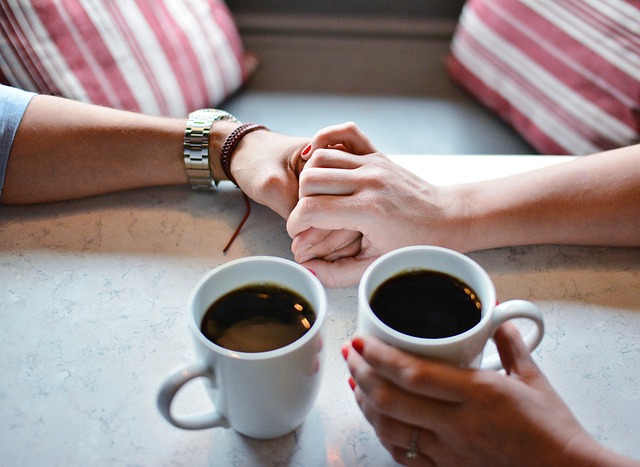
However, a proactive attitude certainly helps, as well as making suitable premarital arrangements on an array of important topics from the upbringing of children to keeping a halal household. Entering into an interfaith (or even interracial) marriage forces one to take stock of these issues in a more fundamental way. For example, many of the imams who do allow Muslim women to marry non-Muslim men will only go ahead with such Nikkahs if the aforementioned criteria are agreed upon, by mutual consultation. Yet this factor rarely makes an appearance in the chorus of voices that disapprove of such unions.
Litmus tests for defining “moderate Muslims” have been widely criticised, and rightly so when they were clumsily inserted into governmental counter-terror strategies, with little consultation among British Muslims themselves. However, I think there is nothing wrong with employing said litmus tests as an individual; it is no different to being discerning in your choice of friends. One of my litmus tests for ascertaining whether a Muslim is on my wavelength or not – since there are so many “Astroturf moderates” out there – is whether they support Muslim women marrying non-Muslim men, ONCE the whole spectrum of valid scholarly positions becomes known to them.
The opinions of scholars like Dr Khaleel Mohammed are much harder to track down than mainstream voices on this issue. That said, anyone who was determined enough to seek possible solutions to the Muslim women’s marriage calamity would make the effort. And one thing that Muslim communities definitely need is more vocal, passionate people – especially men – who support such a conception of women’s rights and freedoms.
The imam sprints towards the mosque, his thobes catching on the pavement gorse. He heads straight for the eateriy, with its stacks of Mecca cola and waft of cumin chicken thighs, acutely aware that his tardiness is not a good first impression for an interfaith event. After setting down his briefcase with a sharp tap, he is welcomed by two rows of smiles, some tentative, some whole-hearted. He launches into earnest dialogue about neighbourliness and citizenship and flashmob iftars for the homeless, when Kalsoom dramatically interrupts with the story of racial discrimination against her husband.
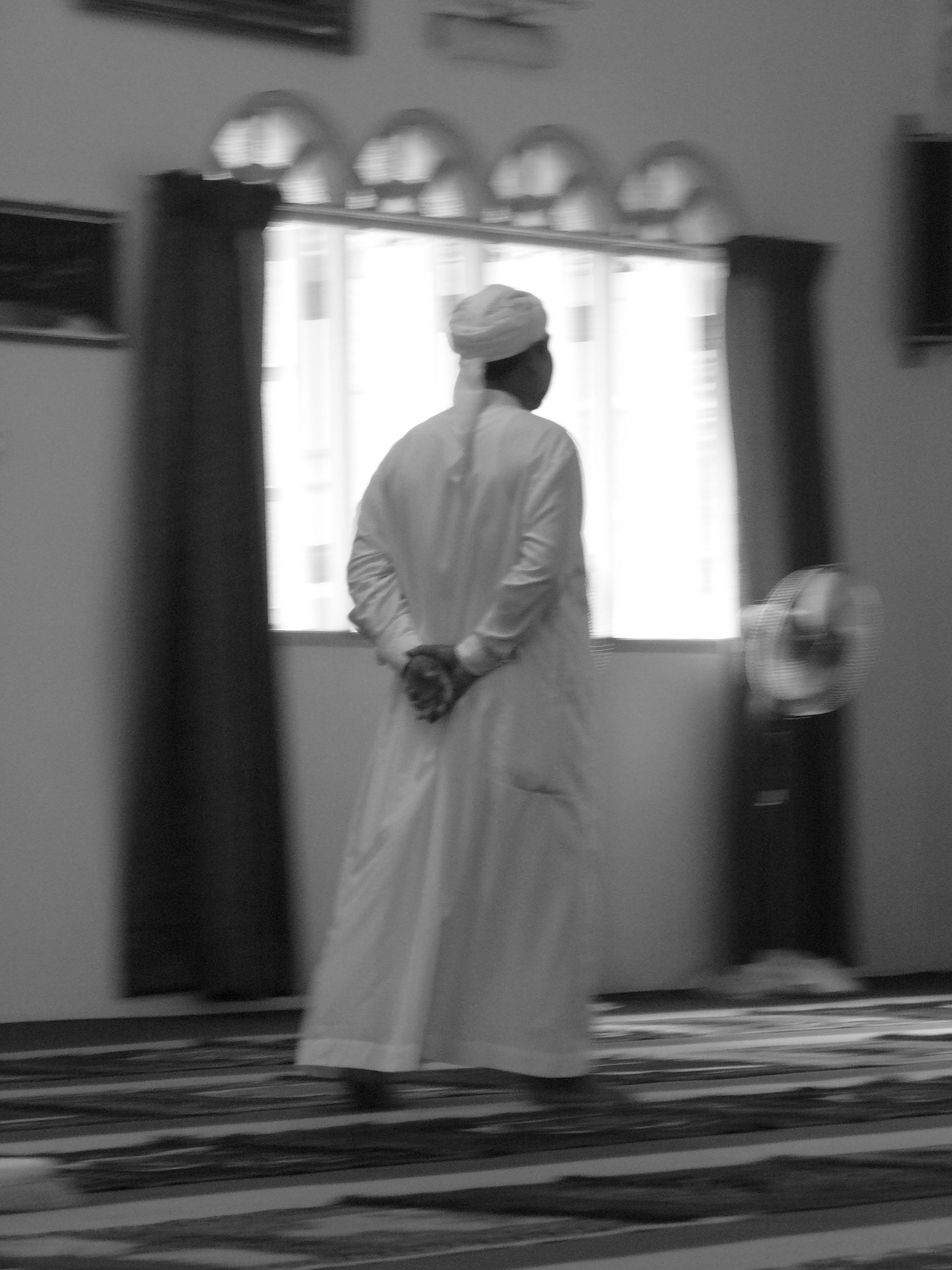
The vicar’s eyes are on goggle-sticks by the time she has finished recounting what happened, but many of the Muslims are angry that she has interrupted the imam in full-flow. The imam breathes in sharply, and says to the crowded faithful: “Imagine you were a guest in someone’s house. They start showing you off as ‘one of us now’. But then, they ignore you and go upstairs to play computer games. The rest of the family tucks into dinner, but you are only allowed some crumbs from the table. Finally, there is some cash missing from the son’s wallet – and they point the finger at YOU, the only Muslim, for stealing it.”
The crowd gasps, and a young engineering student fumes, “Muslims are treated like dirt in this country…”
The imam smiles and says: “That is exactly how Kalsoom’s husband Jamal, has been treated. By Muslims, no less.”
For a delicious moment, silence pervades the room and denial turns into genuine consciousness. The engineering student now knows better than to launch into his rant on foreign policy.

Tehmina Kazi is a human rights activist and writer based in Cork, Ireland. Tehmina was the Director of registered charity British Muslims for Secular Democracy from May 2009 to August 2016, where she worked to raise awareness of secularism among British Muslims and the wider public.
Contact her on TKazi83@yahoo.co.uk.

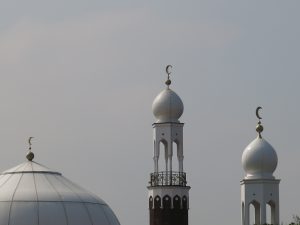
Seriously good piece. Went with my coffee this morning perfectly! Damn, you can write 🙂
Seeda Retweeted an hour ago to reminded me how rubbish I am at keeping in contact.
Dan
When the non-Muslim majority marries minority Muslims it is beauty of ‘secularism, democracy, pluralism, diversity’, but Swhen some Muslim from a Muslim-majority country like Pakistan marries a woman / girl from minority, it is ‘forced-conversion’.
Fish and chips, no BO, and a cat lover? How come you are still single? :-p
I can help out here.
I’ve got a few quid, GSOH, don’t mind the occasional curry (fish and chips preferred), have a car and even make sure I buy plenty of deodorants.
I also have a pet cat called Berk.
So if Tehmina wants to take that leap, I’m on the market.